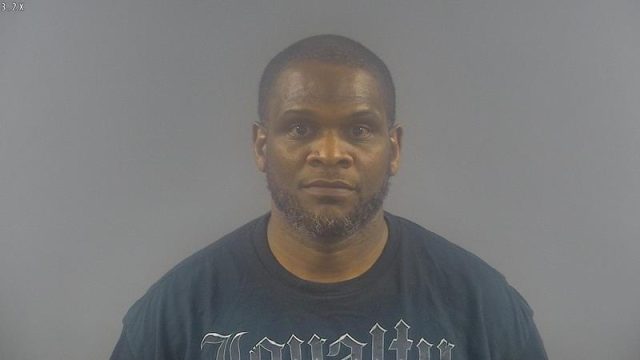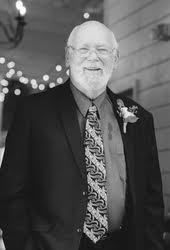Navigating the Medicare Maze
Published 12:00 am Monday, December 12, 2005

- Suel Houchens
Mary White and Maggie Stinson have had challenges paying for the medicine they need.
“I have to have my medicine. I used to order it, but the company I ordered from went out of business,” White said. “My medicines cost quite a bit.”
Trending
Stinson agreed medicine can be difficult to purchase.
“My husband passed away in 1992 of cancer, and I’ve been in and out of the hospital. (Doctors) put me on medication,” she said. “I kept telling my doctor I can’t pay for it. I spent everything I had. I went to my limit.”
The Allen County women began participating in the Commonwealth Health Free Clinic’s Senior Medication Program, which helps low-income senior citizens ages 65 and up who don’t have pharmaceutical insurance get the prescriptions they need. Stinson started when the program began in 1997, and White started in 1999. The program serves patients in Warren and surrounding counties.
“It has been a lifesaver to me,” she said of the program.
Now the program and others like it are about to change as Stinson, White and millions of other seniors across the nation enroll or consider enrolling in the new Medicare Part D prescription drug coverage.
“I’ll miss the seniors from the program,” Smith said. “They all will have a card and can go to any pharmacy they want to. They won’t have to come here anymore.”
Trending
According to the Medicare Web site at www.medicare.gov, Part D is insurance provided by private companies that have been approved by Medicare. Participants can – for the first time – choose coverage for prescription drugs and Medicare will help pay for it. Medicare will provide coverage to help pay for brand-name and generic drugs for those who choose to join one of the plans.
The sign-up period began Nov. 16 and continues through May 15. The drug coverage, beginning Jan. 1 for those who have signed up before the Dec. 31, may help lower prescription drug costs and help protect against higher costs in the future.
“All seniors should look into the plans. We’re finding that it will save them a lot of money,” said Jennifer Smith, resource clinic coordinator at Commonwealth Health Free Clinic. “I think those who are paying out of pocket will save 50 percent of what they’ve been paying. Those who are getting extra assistance are getting their premiums free. We’re trying to get everyone in the program here signed up by Jan. 1.”
Recently, Smith was one of the clinic’s staff who were going online with clients and taking them step-by-step to compare plans. There are 432 seniors in the clinic’s Senior Medication Program.
“We enter their personal information, medications, milligrams,” she said. “Most of them say how simple we’ve made it.”
Before Part D, only some drugs were covered, according to local insurance agent David Weaver, who is an enroller for one of Medicare’s new prescription plans.
“The government deemed that we need a prescription policy. Insurance companies market products that will care for prescription drug needs. Companies had to set up the programs equally,” he said. “This gives everyone the opportunity to be covered, no matter what their financial status is. Every level of the program will fit someone. Some people have to choose between eating and medicine. This is supposed to close the gap.”
According to Medicare.gov, two types of plans will be offered by insurance companies and other private companies:
€Medicare prescription drug plans that add coverage to the original Medicare plan, Medicare private fee-for-service plans not offering Medicare prescription drug coverage, and Medicare cost plans
€Prescription drug coverage that is a part of Medicare Advantage plans – like a HMO, PPO or a PFFS Plan – and other Medicare health plans. All health care, including prescription drug coverage, would be through these plans.
Because there are so many companies and multiple combinations of plans, it can be challenging for some seniors to find the plan best for them.
While Part D may seem confusing, seniors don’t have to wade through the sea of plans alone.
“There are people in the community who will help you,” Smith said. “It takes an average of 30 minutes.”
White and Stinson thought the process for signing up for Medicare Part D would be harder, but having someone walk them through the process helped, they agreed.
“I can see how it could’ve been complicated, but it wasn’t to me,” White said. “They tell you which plan would be best for what you have.”
Weaver said pharmacists can also be a vital source of information for seniors in searching for a good plan.
“They have to look to who can advise them the best. For most of them, it’s their druggist,” Weaver said. “The druggist knows their medication. They have more faith in (their pharmacist) than anyone. Then they can figure out which company best fits their pharmacy.”
Seniors also need to find a plan that fits with their prescription drug needs, Weaver said.
“Each plan covers drugs in a different way,” he said. “If you do mail order, you need to find one with a mail-order plan. If you pick a plan with a company that best fits you, it simplifies the whole process a lot.”
If people sign up for a plan that doesn’t work for them, they can change, Weaver said.
“Some premiums are higher than others. There are different deductibles and different co-pays,” he said. “We want to help people get on the right plan for them.”
Medicare recipients and others who are eligible need to enroll as soon as possible, Weaver said.
“You don’t have to sign up, but you may be penalized if you’re not enrolled,” he said. “Every month you will be penalized. It’s like car insurance. You don’t buy it when the car crashes.”
For those who don’t enroll when they were eligible, the premium cost will go up at least 1 percent per month for every month they wait to join and they will have to pay the penalty as long as they have Medicare prescription drug coverage, according to Medicare.gov. Those who don’t join a plan by May 15 won’t be able to sign up until Nov. 15, 2006.
– For more information about Medicare Part D, call Medicare at (800) 633-4227 or for TTY users at (877) 486-2048 or Kentucky Legal Aid at 782-5740 or toll free at (866) 452-9243.
The Warren County Senior Center, 200 E. Fourth Ave., will help people sign up for Medicare Part D from 9 a.m. to noon Dec. 20.
Participants should bring their Medicare card and a list of the prescriptions they are taking. This list may be obtained from their pharmacist.
– For more information, call Sue Johnson at 783-4484, Ext. 20, or Bobby Gilbert at 792-0351.
According to Medicare.gov, the following are important Medicare Prescription Drug Coverage dates:
Jan. 1
Coverage begins for people who have joined by Dec. 31
May 15
Last day to join a plan offering coverage for 2006
Nov. 15 – Dec. 31, 2006
Next opportunity to enroll






